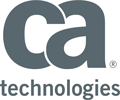Schedule: Leadership skills sessions
The importance of good leadership and management skills can not be overestimated in businesses, both big and small. Incorporating these skills into an already technically diversified skill set creates the powerful professionals we need as senior developers and software architects. Leaders who understand technology and leadership have a strategic advantage in an ever-crowded marketplace. How do you infuse and transform your organization with an entrepreneurial spirit? How do you create a team of professionals that grow with the company? How do you communicate and execute your vision in tandem with key stakeholders?
 James Stewart (Jystewart.net)
James Stewart (Jystewart.net)
 Seth Dobbs (Bounteous)
Seth Dobbs (Bounteous)
 Eben Hewitt (Sabre)
Eben Hewitt (Sabre)
 Sonya Natanzon (Guardant Health)
Sonya Natanzon (Guardant Health)
 Jochem Schulenklopper (Xebia)
Jochem Schulenklopper (Xebia)
 Michelle Brush (Cerner Corporation)
Michelle Brush (Cerner Corporation)
 James Siddle (Skyhook Consulting Ltd)
James Siddle (Skyhook Consulting Ltd)
 James Thompson (Mavenlink)
James Thompson (Mavenlink)
 Joel Crabb (Target)
Joel Crabb (Target)
Sponsorship Opportunities
For exhibition and sponsorship opportunities, email SAconf@oreilly.com
Partner Opportunities
For information on trade opportunities with O'Reilly conferences, email partners@oreilly.com
Contact Us
View a complete list of O'Reilly Software Architecture contacts
©2018, O'Reilly Media, Inc. • (800) 889-8969 or (707) 827-7019 • Monday-Friday 7:30am-5pm PT • All trademarks and registered trademarks appearing on oreilly.com are the property of their respective owners. • confreg@oreilly.com






